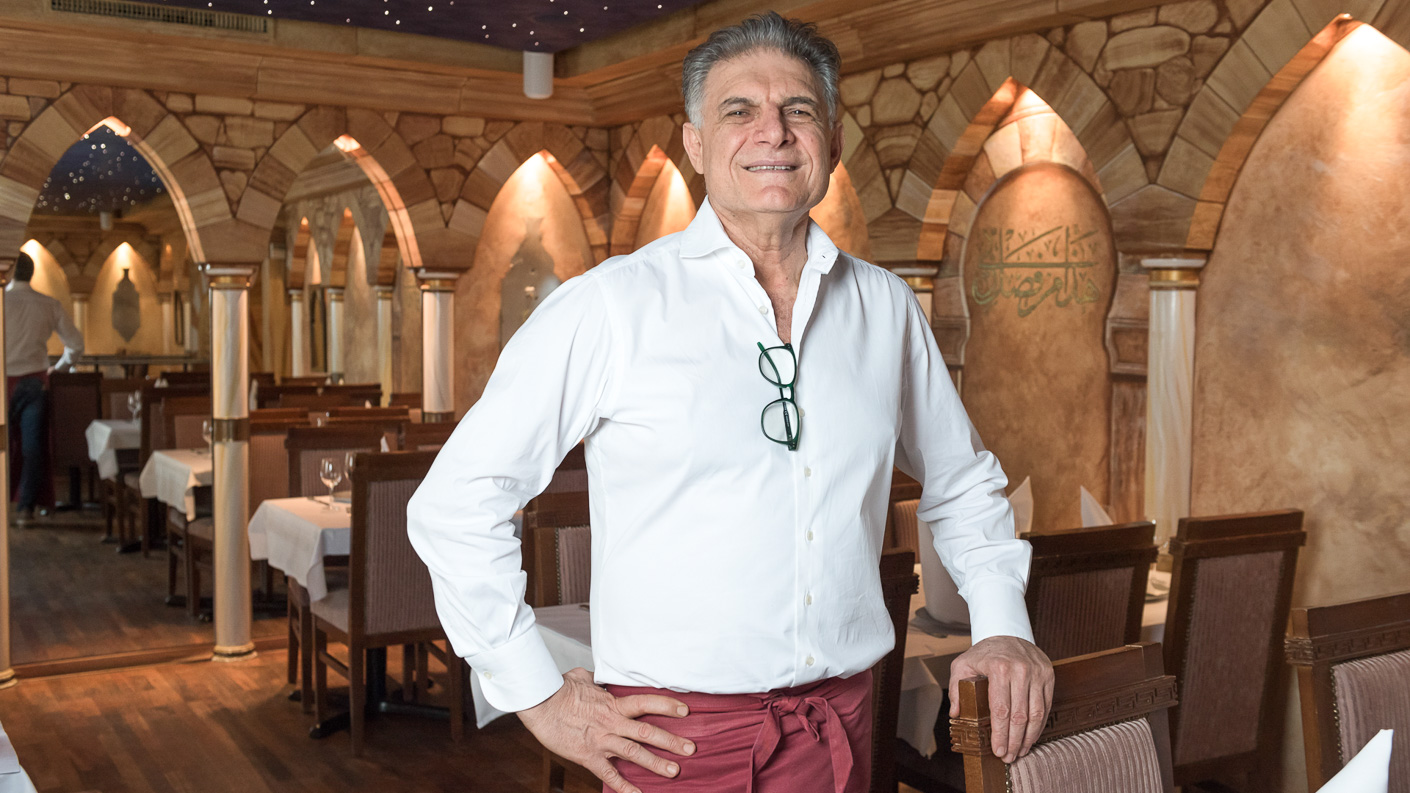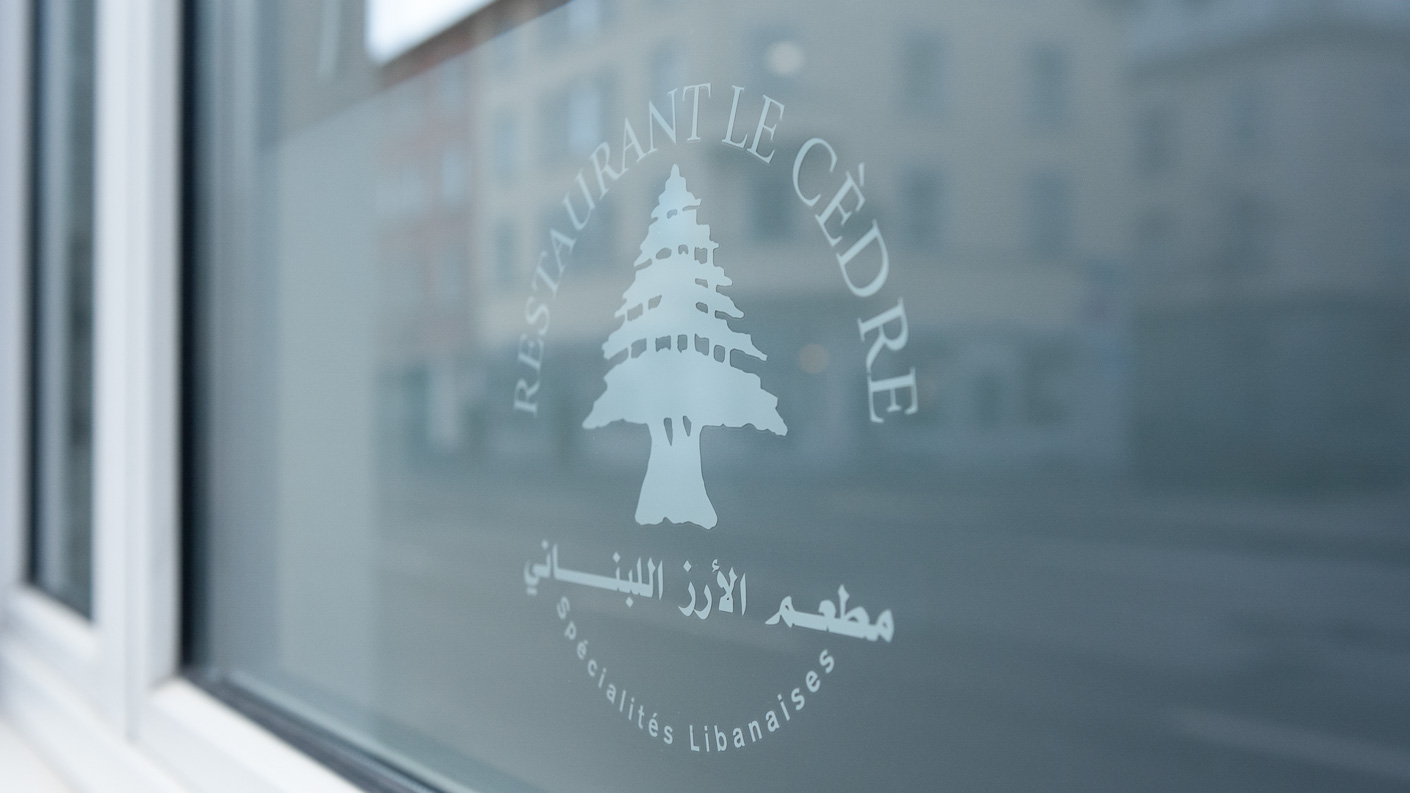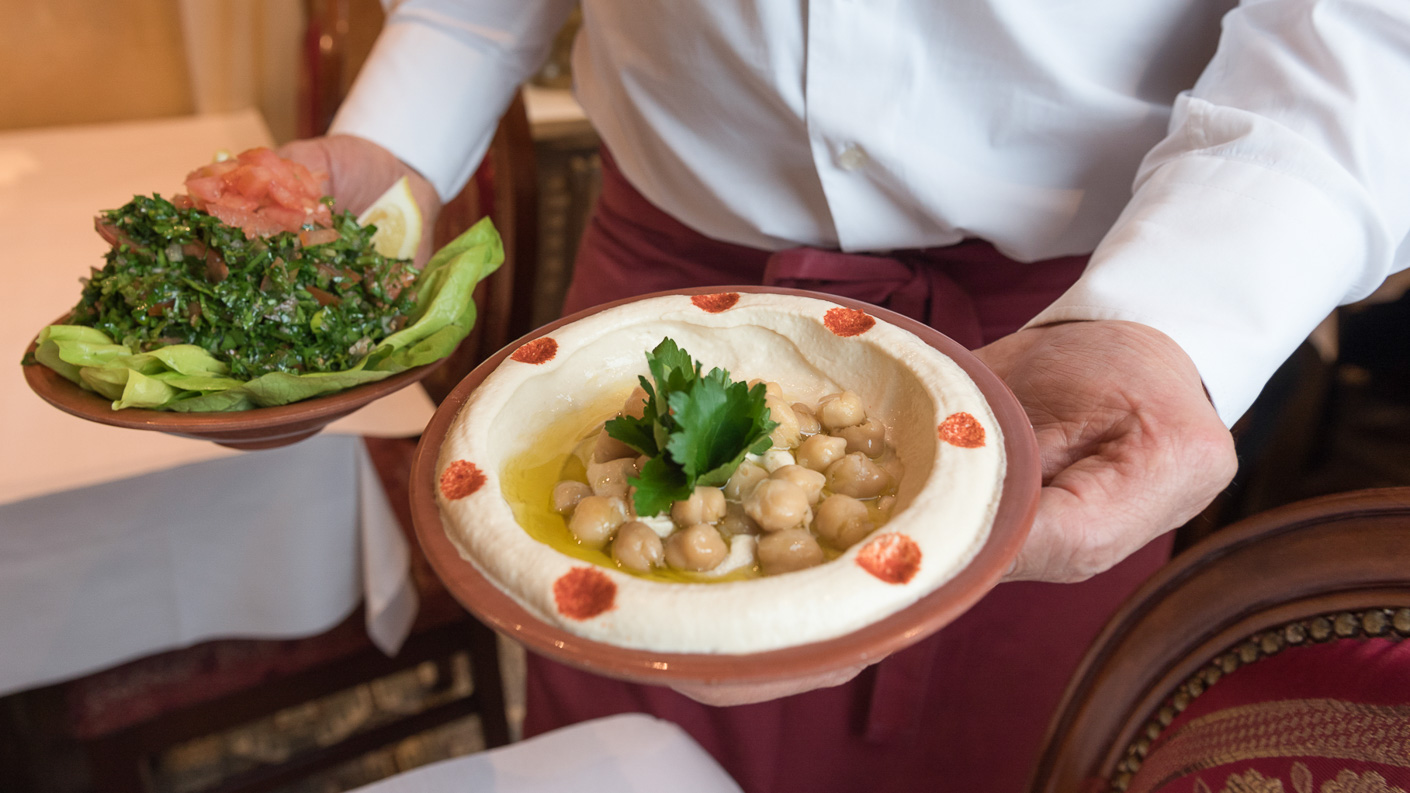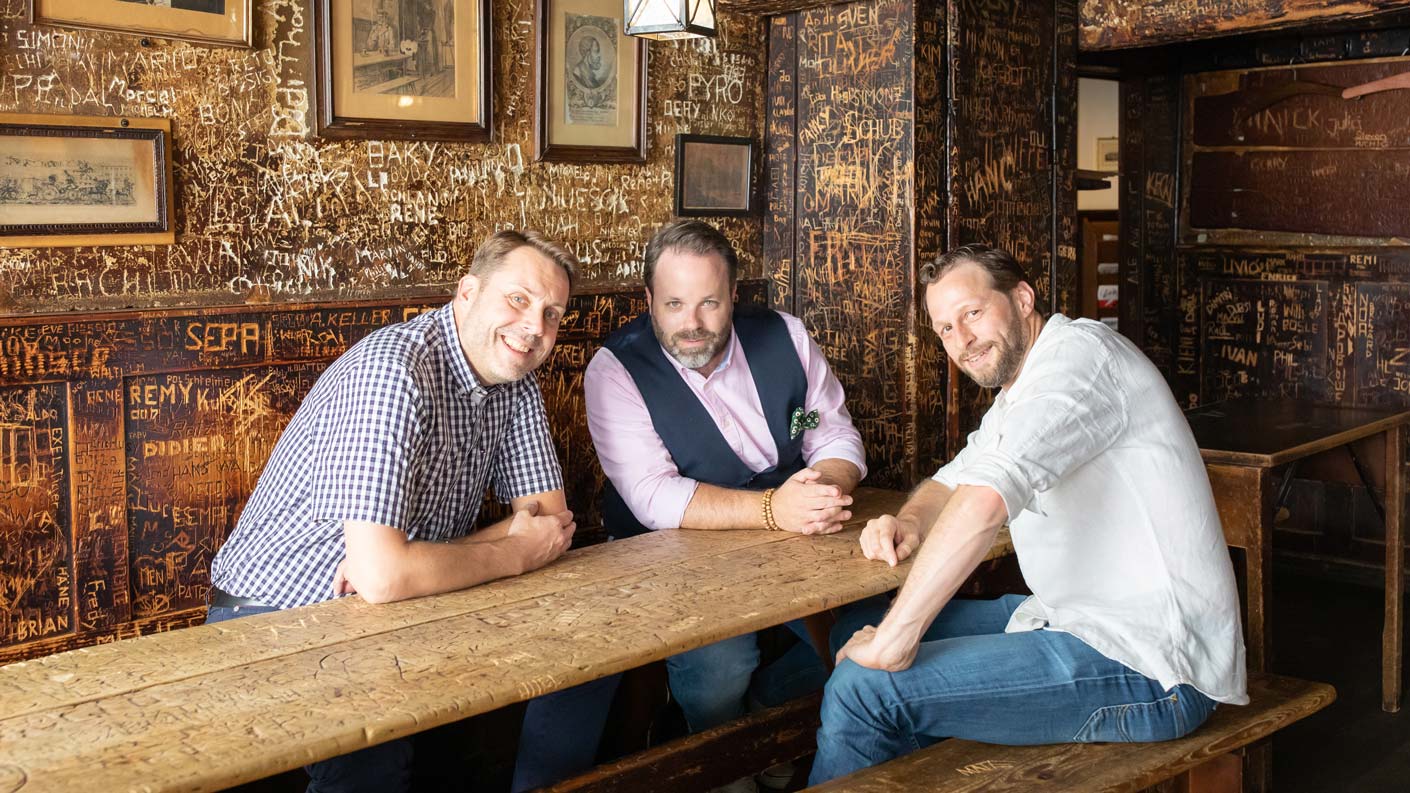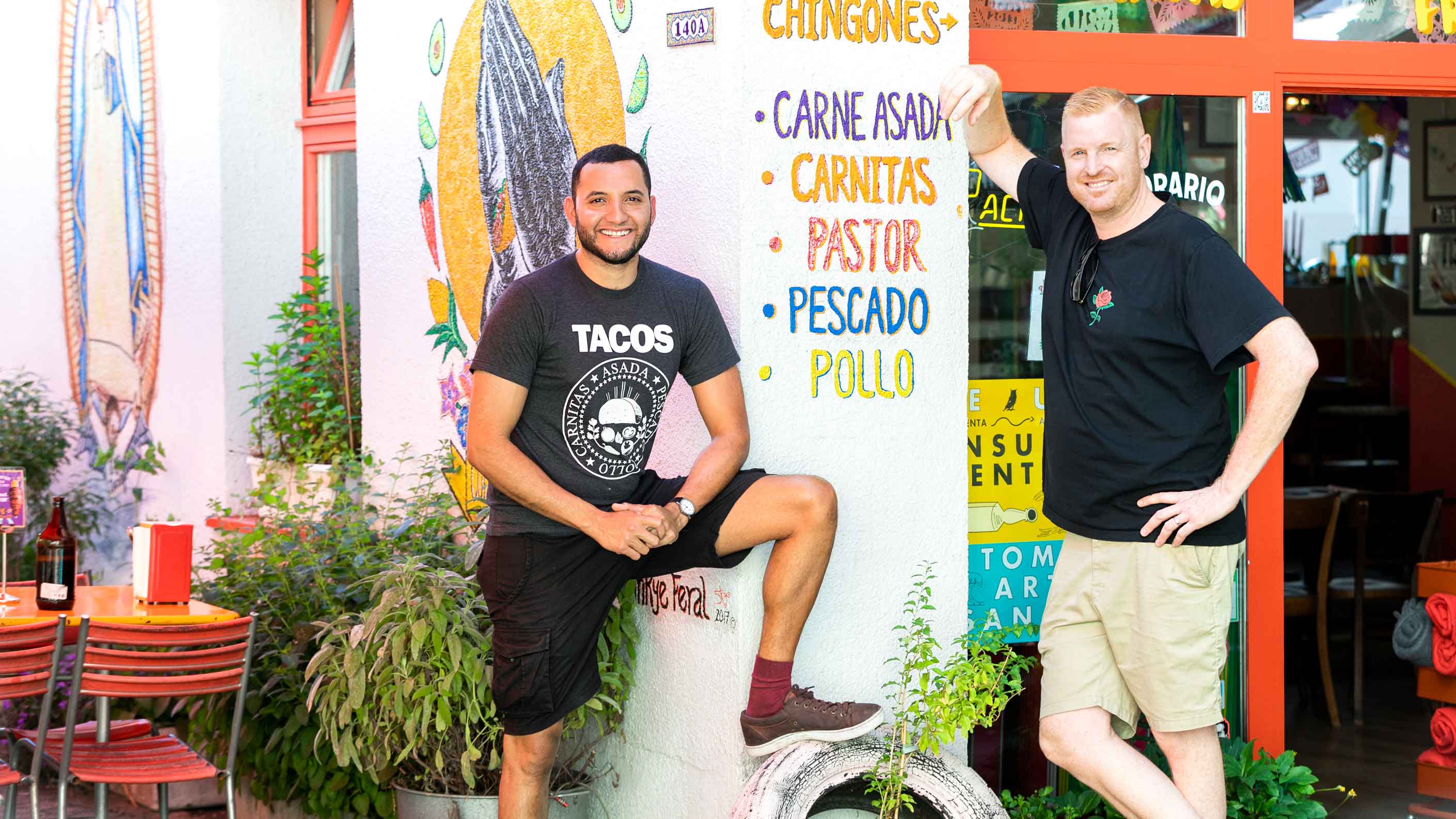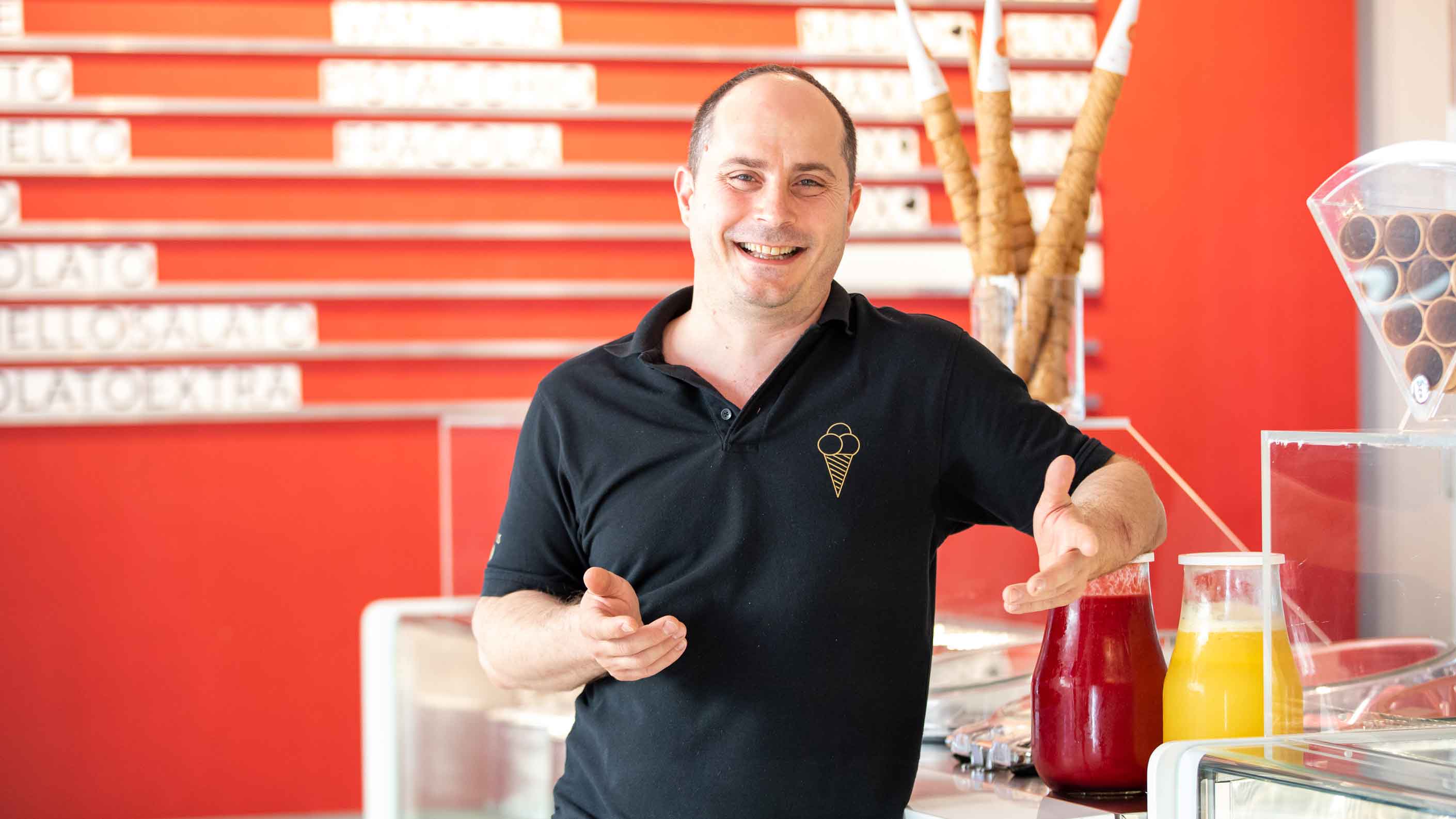Le Cèdre
His working day starts at one o’clock in the morning: for Maurice Houraibi and his Cèdre restaurants, daily fresh produce from the wholesale market is essential.
Maurice Houraibi is responsible for making Lebanese food both famous and popular in Zurich. And this success has continued unabated for years, with further restaurant openings on the cards.
When Maurice Houraibi opened his first restaurant at Badenerstrasse 78 in 1994, nobody in Zurich wanted to eat Lebanese food. ‘I didn’t make a single penny for the first six months,’ says the 59-year-old.
Houraibi’s parents-in-law had loaned him 325,000 Swiss francs to get his Lebanese restaurant off the ground. This was the second time they’d offered him financial assistance. They had given him a first instalment of 80,000 Swiss francs when he had first tried his luck with Lebanese food and a takeaway on Hafnerstrasse. But the business on the quiet street in Kreis 5 never got off the ground. ‘I noticed that the area didn’t have much to offer me,’ as Houraibi puts it.
‘They were wondering what Lebanese food was; was it camel meat?’
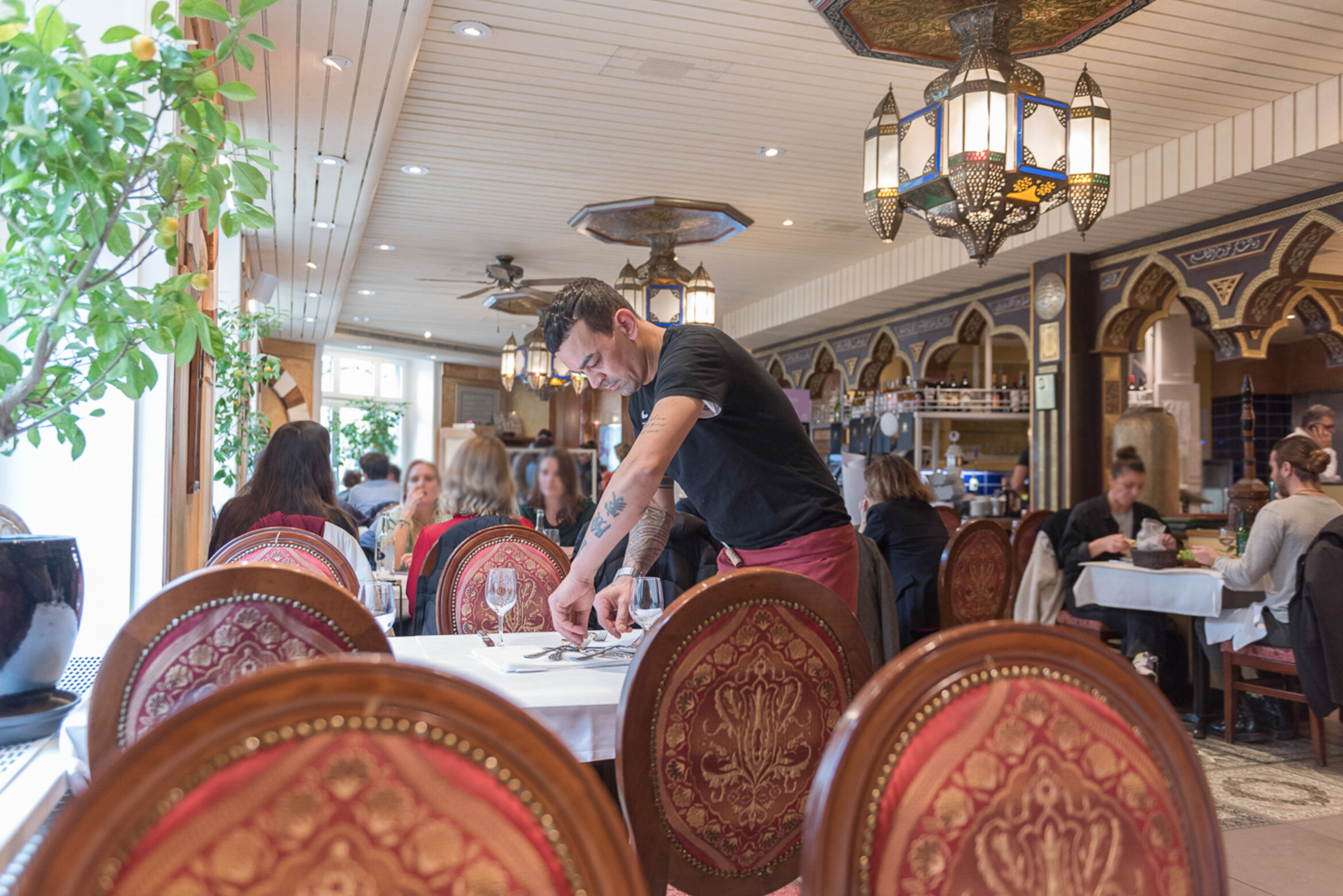
So he travelled around the city on foot to find a better location. He felt that he’d have a better shot on the busier and more central Badenerstrasse, opposite the district court. And before long, the Cèdre replaced the former pizzeria Il Ritrovo. When his restaurant then remained empty for weeks, he asked himself: ‘Whose stupid idea was this?’ People didn’t know about Lebanese food. Nor were they interested in familiarising themselves with it. ‘They were wondering what Lebanese food was; was it camel meat?’
A lucky coincidence changed everything. One day, a concert was taking place in the neighbouring casino hall. In order to promote the restaurant next door, the owner of the venue had imposed a requirement on the event organisers that they would obtain any catering for concerts from there. ‘The concert organiser had initially ordered 300 portions of cannelloni from me,’ Houraibi recalls. Fearing that he would be turned down, he explained to him that he only offered Lebanese dishes. The organiser was a cosmopolitan musician and composer who had already got to know and love Lebanese cuisine in Beirut. ‘He was enthusiastic. He told the concert guests that we were heading over to an insider tip restaurant for dinner,’ says Houraibi and laughs.
The NZZ, Tages-Anzeiger, ZüriTipp and Cash were soon reporting on the Cèdre.
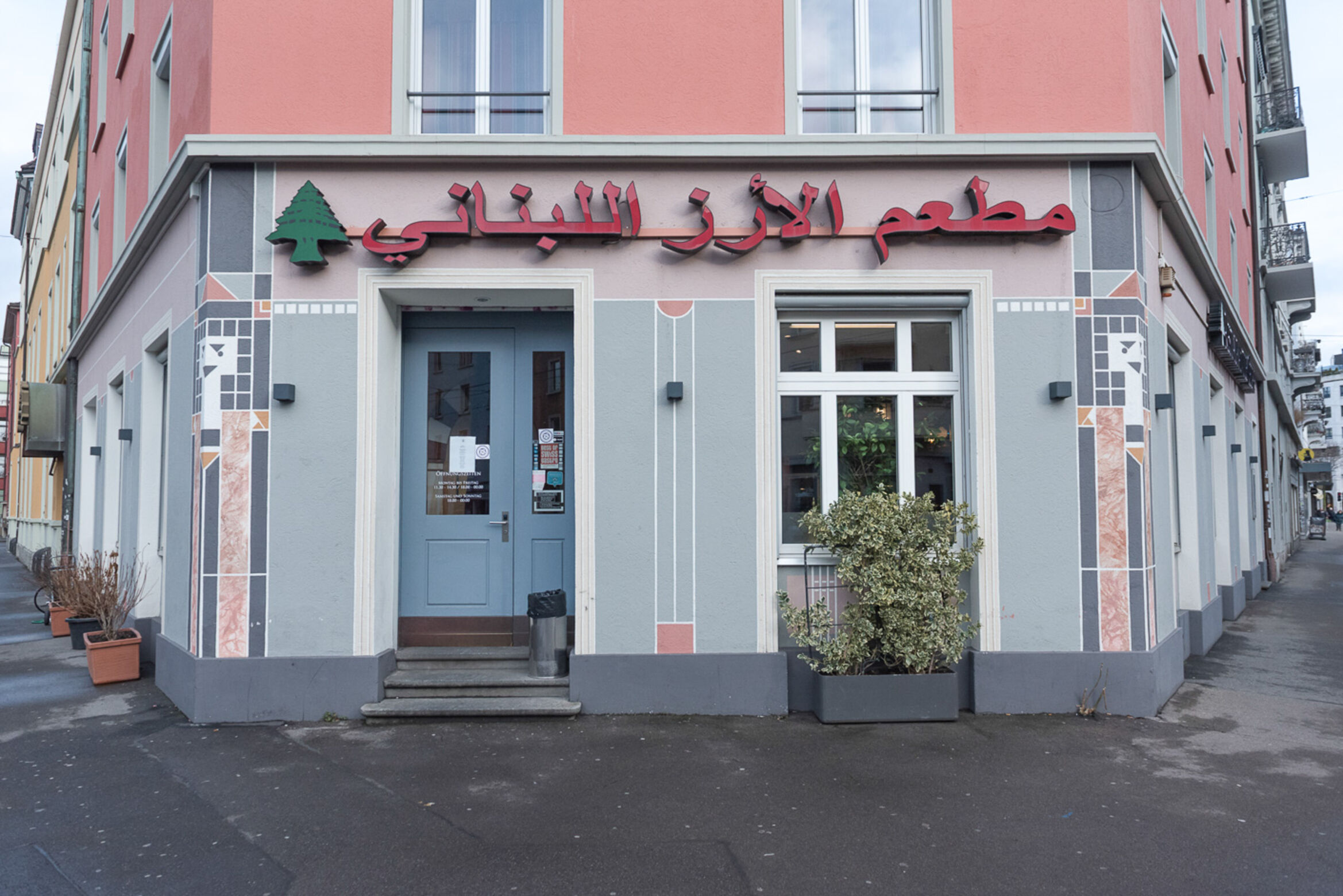
Several journalists were in the concert audience. And they in turn were also enthusiastic about the as-yet-unknown Lebanese cuisine, as Houraibi continues. The NZZ, Tages-Anzeiger, ZüriTipp and Cash were soon reporting on the Cèdre. Tele24 even broadcast live from the kitchen and restaurant. Since then, things have been on the up, as Houraibi emphasises in conversation, his hand flat and his arm outstretched. ‘The concert organiser saved me. I’m eternally grateful to him.’
There are now three Cèdre restaurants in the city of Zurich: the Cèdre Bellevue opened in 2009, while the Cèdre Maurice opened in 2017 on Nüschelerstrasse. Two further restaurant openings are on the cards, one on the banks of the Limmat and the other in Lucerne.
The success has continued for years. It wasn’t long before returning guests understood what delicacies they would find at the Cèdre restaurants, even without a menu. It is hard to come by a table without a reservation. And perhaps the trend towards a plant-based diet has also made Mediterranean Lebanese cuisine, with its high proportion of vegetarian or even vegan dishes, even more popular. According to Houraibi, the aesthetically appealing dishes are particularly popular with female diners. His own statistics indicate that the proportion of women in his restaurants is 70 to 75 per cent.
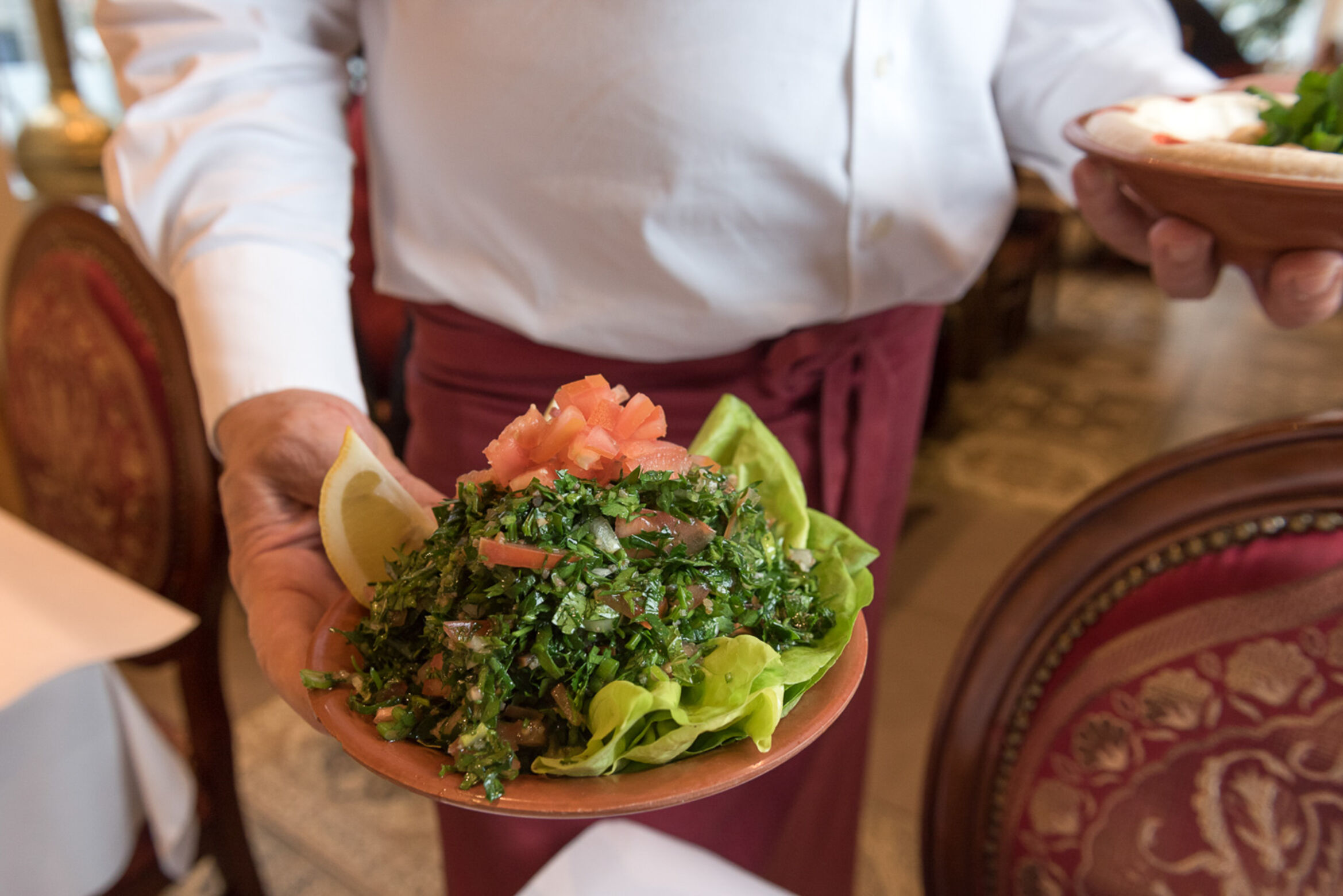
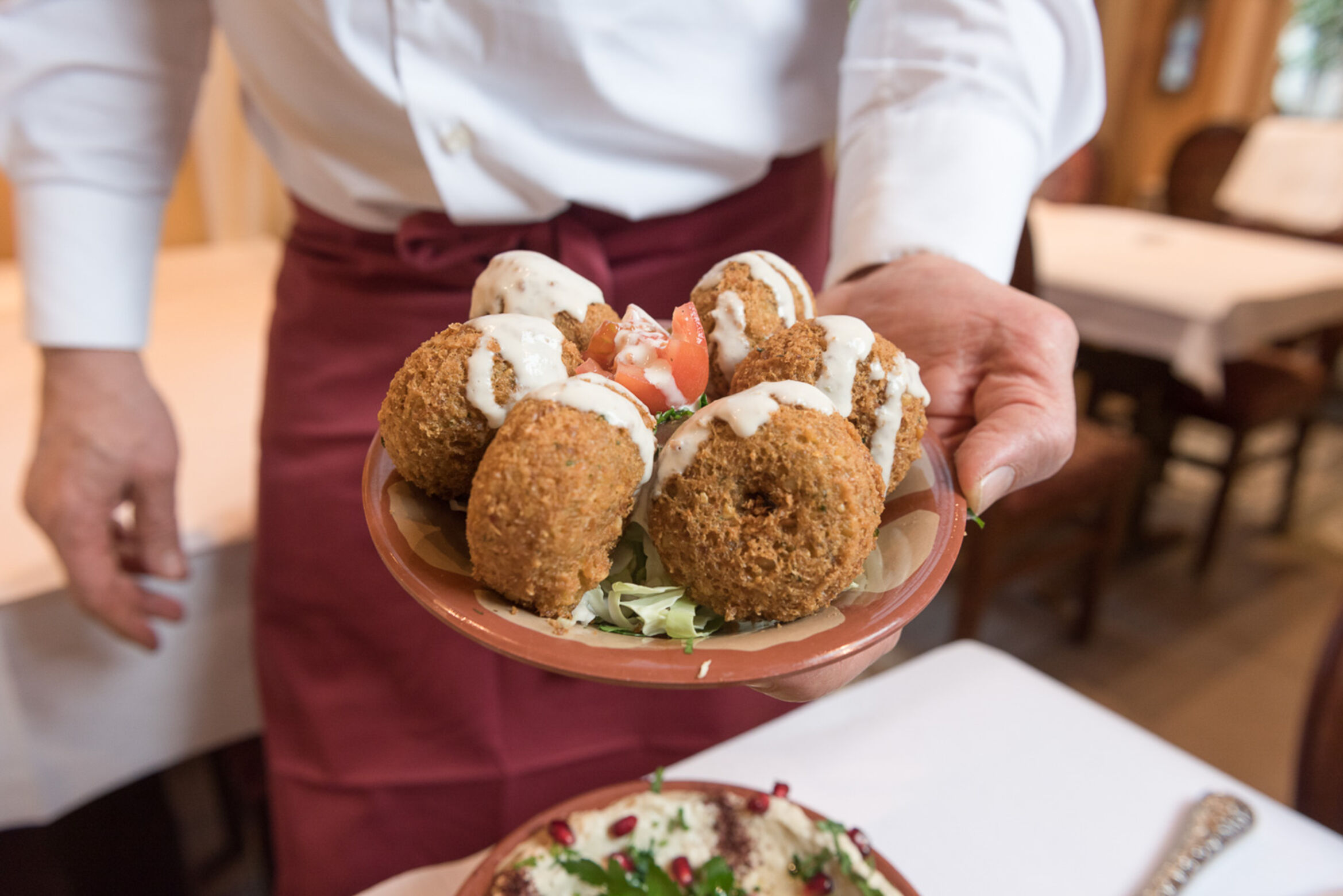
Houraibi currently employs 72 people. For every eight full-time positions in the kitchen, he receives authorisation from the Office of Economic Affairs to employ a chef from Beirut for twelve months. Employees in the kitchen make themselves understood using both English and Arabic. Houraibi also sends the chefs from Lebanon to German language classes.
And the sheer quantities of fresh produce that the three restaurant kitchens process every week also give an impression of the growing business. Houraibi mentions a few figures: 400 to 500 kilos of aubergines per week, 250 to 300 kilos of parsley, meat from the Angst butcher’s shop worth 10,000 Swiss francs.
The upscale hotel industry has been aware of the Cèdre Lebanese cuisine for some time now. Houraibi regularly works with the Bellevue Palace and the Schweizerhof in Berne, the Baur au Lac and the Park Hyatt in Zurich. The Cèdre chefs prepare the ingredients in Zurich, and then put the dishes together in one part of the kitchen, such as at the Bellevue Palace in Berne.
‘I have a good understanding of tomatoes and cucumbers,’ says Houraibi.
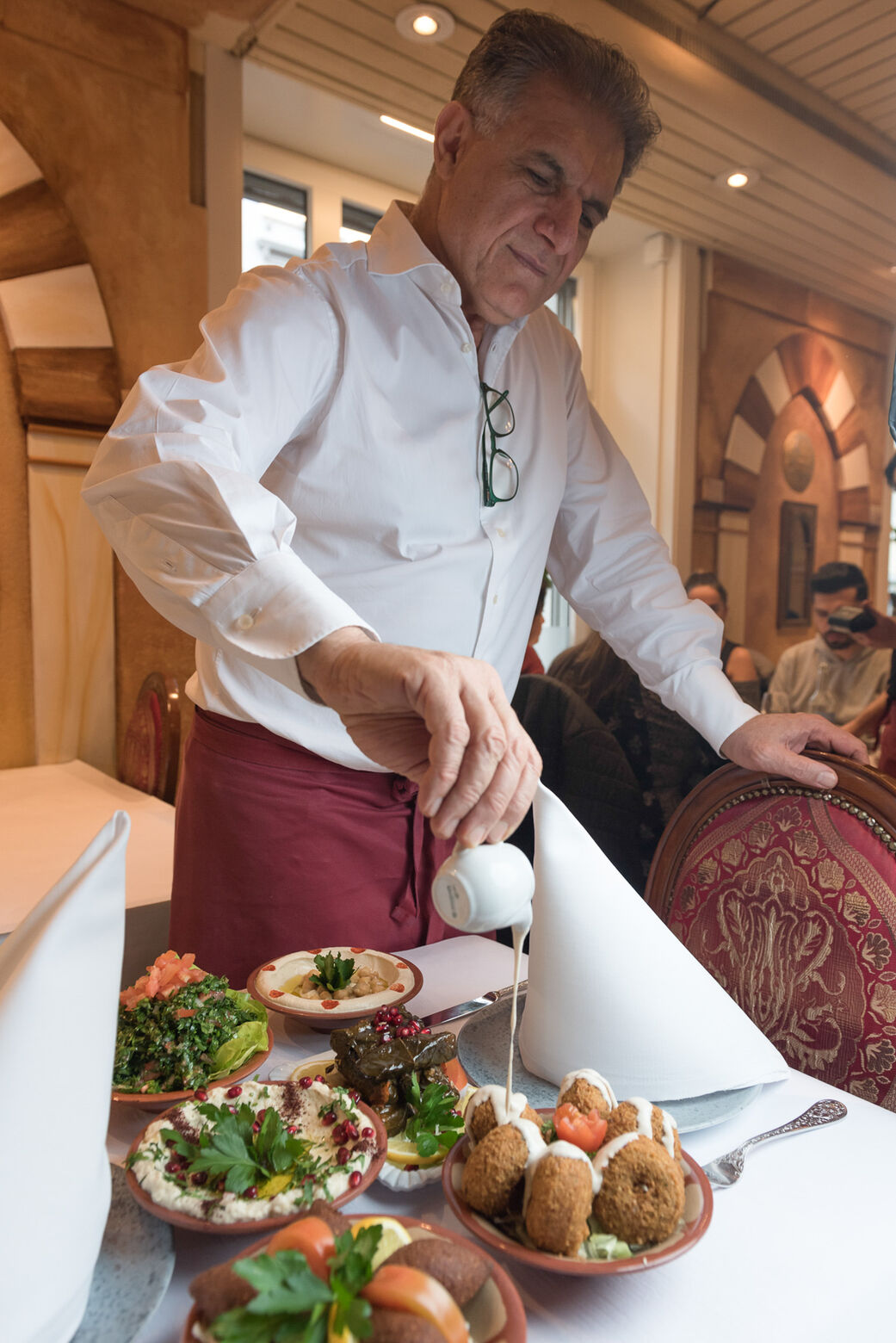
Among other things, the restaurateur attributes his continued success over the years to the fact that his dishes are always freshly prepared – even if this requires hours of cooking. Hummus, made mainly of chickpeas, is prepared fresh daily by the chefs at the Cèdre restaurants. ‘It doesn’t taste as good the day after,’ says Houraibi. He forbids his chefs from using yesterday’s hummus.
Produce of outstanding quality is required. To find the best produce, the boss himself drives to Zurich’s wholesale fruit and vegetable market every day at 1am or 1:30am. ‘I have a good understanding of tomatoes and cucumbers,’ says Houraibi. This helps him figure out whether the produce is of the required quality. From 4am, he delivers the produce to three branches of the restaurant, and his purchasing trip ends at six in the morning. Houraibi has also worked in hospitality at the Cèdre on Badenerstrasse for 33 years. His working day lasts 17 hours. ‘It’s intense, but I love my work,’ says the 59-year-old.
His persistent efforts are paying off. Not only has he succeeded in winning over the locals, but he has also attracted tourists, especially guests from the Gulf States, with his pioneering Zurich-Lebanese cuisine. ‘I have people calling me from Qatar to book a table,’ says Houraibi. In the meantime, Cèdre restaurants have become relevant for tourism. According to Houraibi, his company is a partner of Zurich Tourism and Switzerland Tourism. ‘The guests from the Gulf States were initially mostly travelling to Geneva. Then to Interlaken. Today, they are continuing their journey in Switzerland as far as Zurich.’
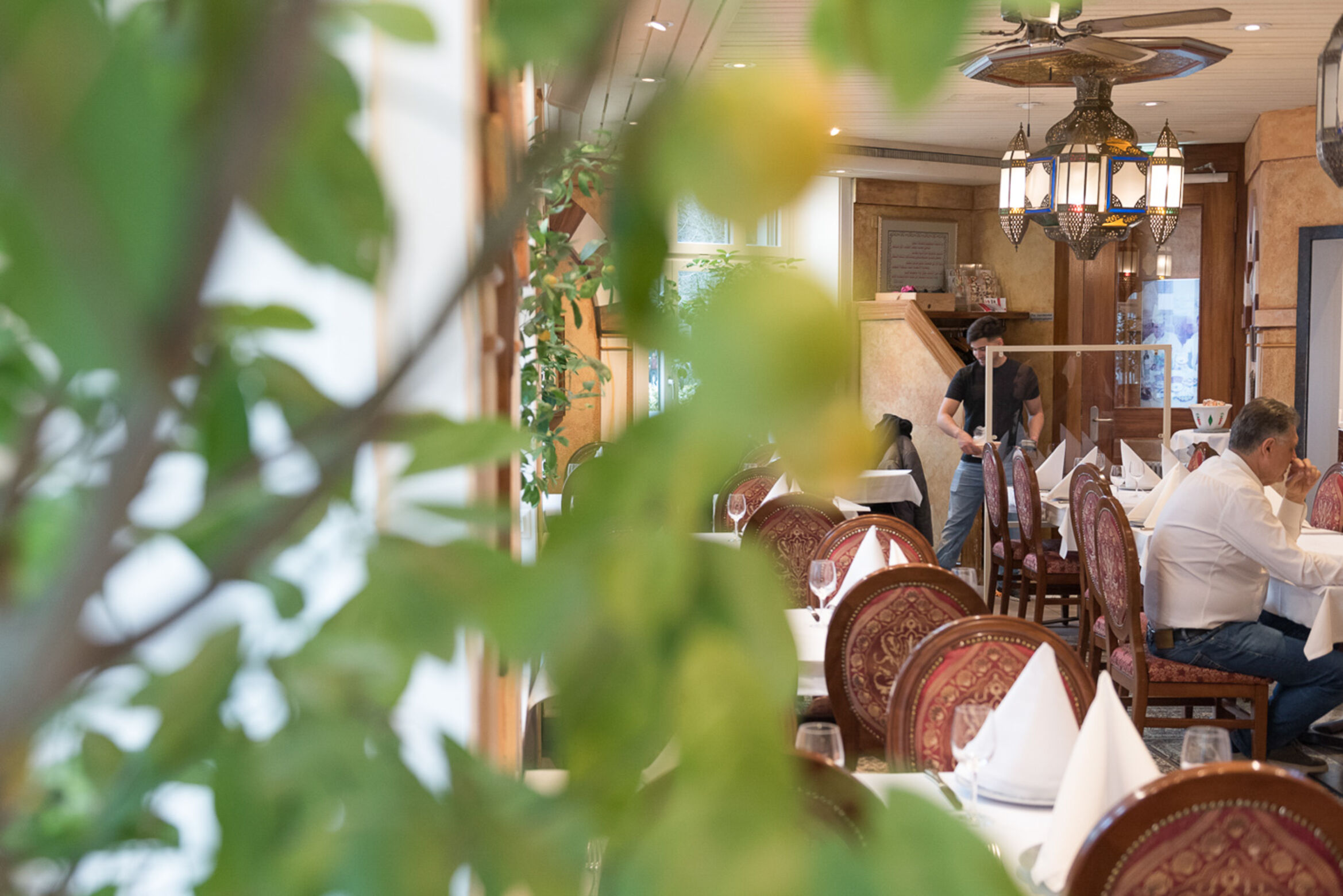
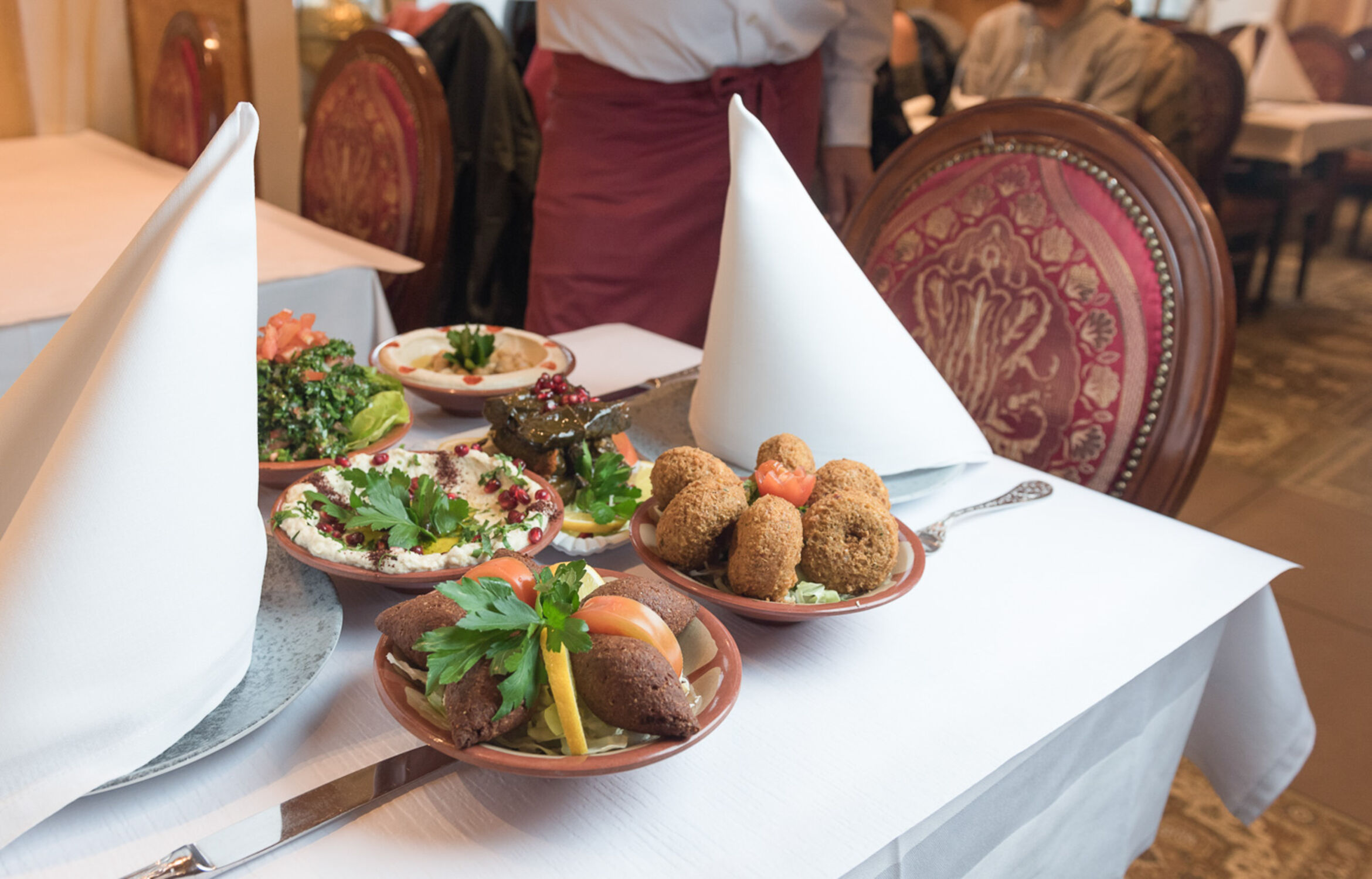
It goes without saying that guests therefore frequently ask whether his food is halal, that is, whether it complies with Islamic dietary laws. ‘Halal is an issue in Switzerland,’ says Houraibi, who is from the Christian part of the population in diverse Lebanon. Houraibi places great value on Swiss meat. However, a solution has been in place for two years – he says that since then, lambs have been slaughtered at the abattoir in Zurich in a way that complies with Swiss animal welfare regulations, and the meat is recognised as halal.
Of course, the restaurateur aims to use as many Swiss ingredients as possible. He imports certain items, such as olive oil and peppermint, from Lebanon, along with wine. ‘I am a general importer for Lebanese wine.’ He mentions that he imports 15,000 to 20,000 bottles per year.
Just like the hummus, the Cèdre establishments also produce pomegranate juice for sauces themselves – for quality reasons, bottled pomegranate juice is out of the question for Houraibi. Soon there will also be a more regional solution for the flatbread, which he currently imports from Germany and which, according to Houraibi, no one in Switzerland is currently producing. He is soon set to open a central kitchen in Zurich’s Altstetten covering 720 square metres, in which employees will bake his flatbread and cut meat for the various businesses at a central location.
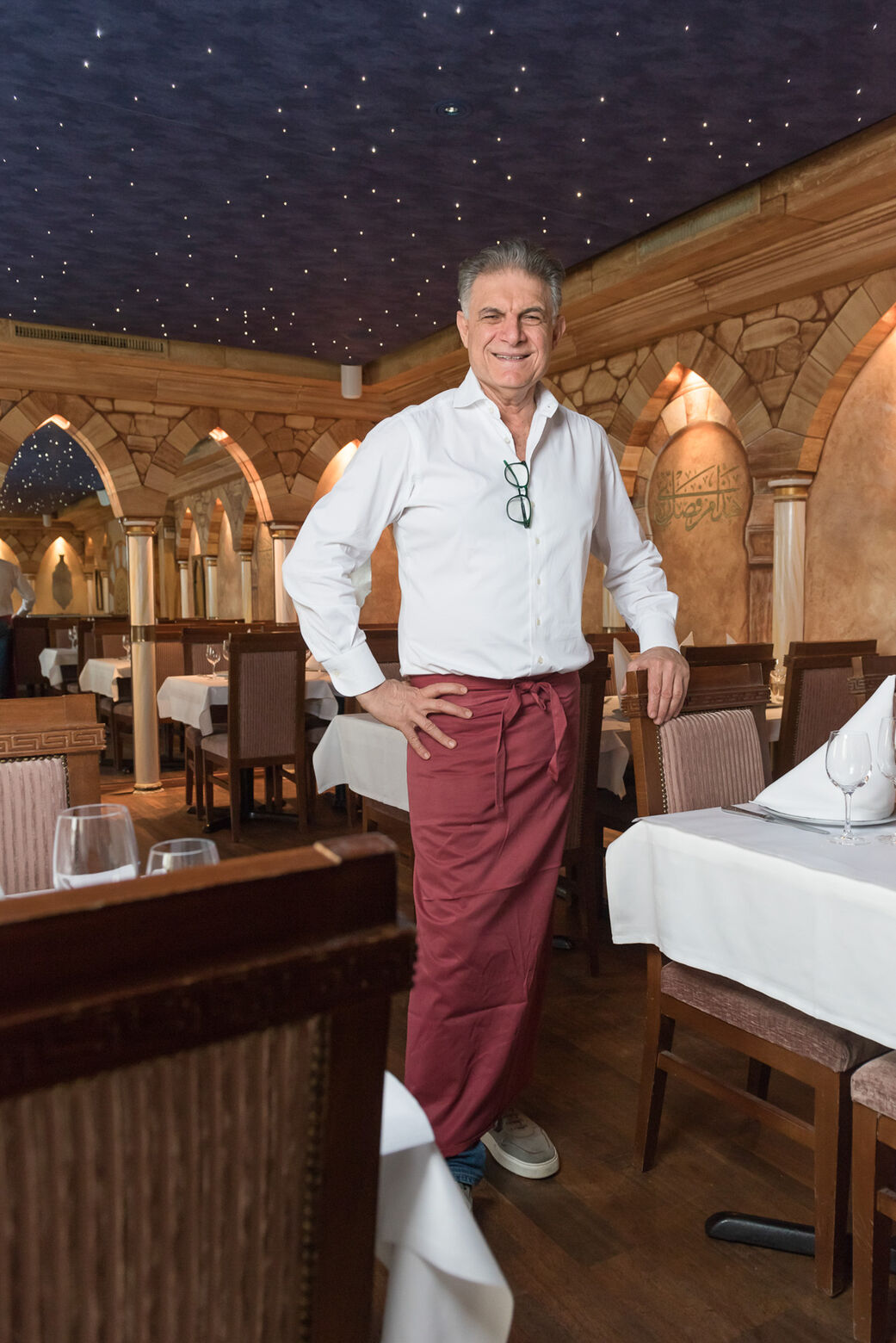
Even though his company has now taken on practically industrial dimensions, the Cèdre restaurants still remain a family business. Cèdre’s regular customers know him, and he knows them and their culinary preferences. ‘If I happen to not be on duty, the guests ask, where’s Maurice?’ Houraibi’s wife is responsible for the office, while his brother mans the kitchen at the restaurant in Bellevue. Their two sons, both law graduates, also work in the company. He is ‘100 per cent’ certain that he will hand over the business to them some day. When exactly that will be remains unclear. ‘I love my work. I’ve found my place.’
Address
Le Cèdre
Badenerstrasse 78
8004 Zürich
+41 44 241 42 72
Website
Opening hours
Tuesday to Friday, 11:30 am – 2:30 pm und 6 pm – midnight
Saturday and Sunday, 6 pm – midnight
